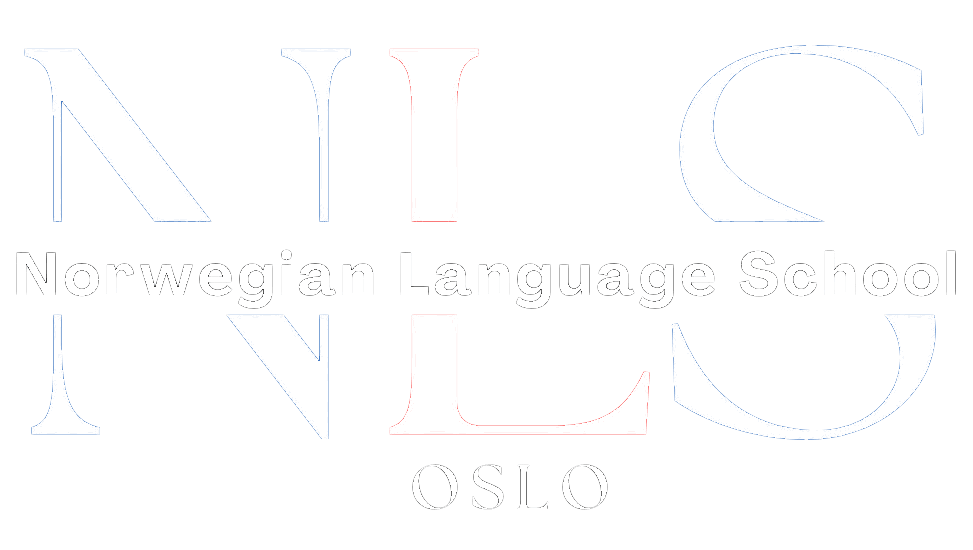

Building Blocks: Essential Business Norwegian Vocabulary
Table of Contents
ToggleIntroduction
In today’s globalized business landscape, the ability to communicate effectively in multiple languages is not just an asset—it’s often a necessity. For professionals looking to engage with Norwegian businesses, work in Norway, or expand their operations into the Norwegian market, mastering essential business vocabulary in Norwegian is crucial. This comprehensive guide will introduce you to key Norwegian business terms, phrases, and concepts, providing you with the linguistic tools necessary to navigate the Norwegian business landscape with confidence and professionalism.
Before we delve into the details, we’d like to inform you that if you’re looking to enhance your Norwegian language skills for business purposes, the NLS Norwegian Language School in Oslo offers specialized one-on-one classes. You can learn more about these private classes at https://nlsnorwegian.no/private-classes-1-to-1-learn-norwegian/. These courses are designed to help you master business vocabulary, improve your pronunciation, and boost your overall confidence in using Norwegian in professional settings.
The Importance of Mastering Business Norwegian Vocabulary
Being able to use Norwegian business vocabulary effectively offers several advantages:
- Enhanced communication: Precise use of business terms facilitates clearer communication with Norwegian colleagues, partners, and clients. This clarity can prevent misunderstandings and streamline business processes.
- Cultural integration: Understanding and using local business terminology demonstrates respect for Norwegian business culture. It shows your commitment to integrating into the local business environment, which can lead to stronger relationships with Norwegian counterparts.
- Professional credibility: Proper use of Norwegian business language enhances your professional image and credibility. It demonstrates your dedication to understanding the local business context and can set you apart from competitors who may not have invested in language skills.
- Negotiation advantage: Knowledge of specific business terms can give you an edge in negotiations and meetings. Understanding nuances in language can help you pick up on subtle cues and express your points more effectively.
- Document comprehension: Familiarity with business vocabulary aids in understanding contracts, reports, and other business documents. This can be crucial for making informed decisions and ensuring compliance with local regulations.
- Networking opportunities: Speaking the language of business opens doors to networking and relationship-building in Norway. It allows you to participate more fully in business events, conferences, and informal gatherings.
- Career advancement: Proficiency in Norwegian business language can lead to better job opportunities in Norway or with Norwegian companies. It’s a valuable skill that can set you apart in the job market.
- Market insights: Understanding business terms helps in gaining deeper insights into the Norwegian market and economy. It allows you to follow local business news, trends, and discussions more effectively.
Now, let’s explore essential Norwegian business vocabulary across various domains of business operations.
1. General Business Terms
These are fundamental terms you’ll encounter frequently in Norwegian business contexts:
Key Terms:
- Bedrift (Company)
- Selskap (Company/Corporation)
- Næringsliv (Business sector)
- Marked (Market)
- Konkurranse (Competition)
- Strategi (Strategy)
- Ledelse (Management)
- Ansatt (Employee)
- Kunde (Customer)
- Leverandør (Supplier)
- Kontrakt (Contract)
- Møte (Meeting)
- Forhandling (Negotiation)
- Salg (Sales)
- Markedsføring (Marketing)
- Forretningsmodell (Business model)
- Verdikjede (Value chain)
- Bransje (Industry)
- Målsetting (Objective)
- Resultat (Result)
Example Sentences:
- “Vår bedrift fokuserer på bærekraftig produksjon.” (Our company focuses on sustainable production.)
- “Vi må utvikle en ny strategi for å møte konkurransen i markedet.” (We need to develop a new strategy to meet the competition in the market.)
- “Ledelsen har besluttet å ansette flere medarbeidere.” (The management has decided to hire more employees.)
- “Vår forretningsmodell er basert på abonnementstjenester.” (Our business model is based on subscription services.)
- “Vi må optimalisere verdikjeden for å øke lønnsomheten.” (We need to optimize the value chain to increase profitability.)
Understanding these general business terms is crucial for navigating everyday business conversations and discussions about company operations and strategy.
2. Financial and Accounting Terms
Understanding financial vocabulary is crucial for discussing business performance, investments, and financial strategies:
Key Terms:
- Regnskap (Accounting)
- Budsjett (Budget)
- Omsetning (Turnover/Revenue)
- Fortjeneste (Profit)
- Tap (Loss)
- Balanse (Balance Sheet)
- Eiendeler (Assets)
- Gjeld (Debt/Liabilities)
- Egenkapital (Equity)
- Investering (Investment)
- Aksje (Share/Stock)
- Utbytte (Dividend)
- Skatt (Tax)
- Revisjon (Audit)
- Avskrivning (Depreciation)
- Likviditet (Liquidity)
- Kontantstrøm (Cash flow)
- Resultatregnskap (Income statement)
- Rentabilitet (Profitability)
- Valutakurs (Exchange rate)
Example Sentences:
- “Årsregnskapet viser en solid økning i omsetning og fortjeneste.” (The annual accounts show a solid increase in turnover and profit.)
- “Vi må redusere gjelden og øke egenkapitalen for å styrke balansen.” (We need to reduce debt and increase equity to strengthen the balance sheet.)
- “Styret har foreslått et utbytte på 5 kroner per aksje.” (The board has proposed a dividend of 5 kroner per share.)
- “Vår likviditet er god, med en sterk positiv kontantstrøm.” (Our liquidity is good, with a strong positive cash flow.)
- “Valutakurssvingninger har påvirket våre internasjonale investeringer.” (Exchange rate fluctuations have affected our international investments.)
Mastering these financial terms is essential for understanding and discussing company financials, investment opportunities, and financial performance metrics.
3. Human Resources and Employment
Vocabulary related to employment and human resources is essential for discussing workforce matters:
Key Terms:
- Ansettelse (Hiring/Employment)
- Oppsigelse (Termination/Resignation)
- Lønn (Salary/Wage)
- Arbeidstid (Working hours)
- Ferie (Vacation)
- Permisjon (Leave)
- Overtid (Overtime)
- Pensjon (Pension)
- Arbeidsavtale (Employment contract)
- Fagforening (Labor union)
- Kompetanseutvikling (Skills development)
- Medarbeidersamtale (Employee performance review)
- Arbeidsmiljø (Work environment)
- HMS (Helse, Miljø og Sikkerhet) (HSE – Health, Safety and Environment)
- Rekruttering (Recruitment)
- Personalavdeling (Human Resources department)
- Arbeidsgiver (Employer)
- Arbeidstaker (Employee)
- Tariffavtale (Collective agreement)
- Prøvetid (Probation period)
Example Sentences:
- “Vi søker etter en erfaren prosjektleder for en fast ansettelse.” (We are looking for an experienced project manager for a permanent position.)
- “Alle ansatte har rett til fem ukers ferie i året.” (All employees are entitled to five weeks of vacation per year.)
- “HMS er en viktig del av vår bedriftskultur.” (HSE is an important part of our corporate culture.)
- “Vi gjennomfører årlige medarbeidersamtaler for å diskutere utvikling og mål.” (We conduct annual employee performance reviews to discuss development and goals.)
- “Vår tariffavtale sikrer gode arbeidsvilkår for alle ansatte.” (Our collective agreement ensures good working conditions for all employees.)
Understanding these HR terms is crucial for navigating employment matters, workplace policies, and employee relations in a Norwegian business context.
4. Marketing and Sales
These terms are crucial for discussing business growth, customer relations, and market strategies:
Key Terms:
- Markedsføringskampanje (Marketing campaign)
- Målgruppe (Target audience)
- Merkevarebygging (Branding)
- Kundeservice (Customer service)
- Salgsavdeling (Sales department)
- Markedsandel (Market share)
- Reklame (Advertising)
- Produktutvikling (Product development)
- Prisstrategier (Pricing strategies)
- Kundelojalitet (Customer loyalty)
- Markedsundersøkelse (Market research)
- Salgsmål (Sales targets)
- Digital markedsføring (Digital marketing)
- Sosiale medier (Social media)
- Kundereise (Customer journey)
- Konverteringsrate (Conversion rate)
- Inbound marketing (Inbound marketing)
- Innholdmarkedsføring (Content marketing)
- Søkemotoroptimalisering (Search engine optimization – SEO)
- Salgsfremmende tiltak (Sales promotion)
Example Sentences:
- “Vi lanserer en ny markedsføringskampanje neste måned for å øke vår markedsandel.” (We are launching a new marketing campaign next month to increase our market share.)
- “Kundeservice er nøkkelen til å bygge langsiktig kundelojalitet.” (Customer service is key to building long-term customer loyalty.)
- “Våre salgsmål for neste kvartal er ambisiøse men oppnåelige.” (Our sales targets for next quarter are ambitious but achievable.)
- “Vi fokuserer på innholdmarkedsføring for å tiltrekke nye kunder.” (We are focusing on content marketing to attract new customers.)
- “Søkemotoroptimalisering er viktig for å øke vår synlighet på nett.” (Search engine optimization is important to increase our online visibility.)
Mastering these marketing and sales terms is essential for discussing strategies to grow the business, attract customers, and increase market presence.
5. Legal and Regulatory Terms
Understanding legal terminology is important for compliance, contract negotiations, and navigating the regulatory landscape:
Key Terms:
- Avtale (Agreement)
- Kontrakt (Contract)
- Rettslig (Legal)
- Lovgivning (Legislation)
- Forskrift (Regulation)
- Immaterielle rettigheter (Intellectual property rights)
- Personvern (Privacy)
- Arbeidsmiljøloven (Working Environment Act)
- Aksjeloven (Limited Liability Companies Act)
- Skatteregler (Tax rules)
- Tvisteløsning (Dispute resolution)
- Patentbeskyttelse (Patent protection)
- Konkurranselovgivning (Competition law)
- Forbrukervern (Consumer protection)
- Databeskyttelse (Data protection)
- Kontraktsbrudd (Breach of contract)
- Erstatning (Compensation)
- Juridisk ansvar (Legal liability)
- Fullmakt (Power of attorney)
- Taushetsplikt (Confidentiality obligation)
Example Sentences:
- “Kontrakten må være i samsvar med norsk lovgivning.” (The contract must comply with Norwegian legislation.)
- “Vi må sikre at våre rutiner er i tråd med personvernreglene.” (We need to ensure our procedures are in line with privacy regulations.)
- “Selskapet har søkt om patentbeskyttelse for sin nye teknologi.” (The company has applied for patent protection for its new technology.)
- “Alle ansatte må underskrive en taushetserklæring.” (All employees must sign a confidentiality agreement.)
- “Vi må være oppmerksomme på konkurranselovgivningen i vår markedsføring.” (We need to be mindful of competition law in our marketing.)
Understanding these legal and regulatory terms is crucial for ensuring compliance, protecting the company’s interests, and navigating the legal aspects of business operations in Norway.
6. Technology and Innovation
In today’s digital age, understanding tech-related business terms is crucial for discussing digital transformation, innovation, and technological advancements:
Key Terms:
- Innovasjon (Innovation)
- Digitalisering (Digitalization)
- Kunstig intelligens (Artificial intelligence)
- Blokkjedeteknologi (Blockchain technology)
- Skylagring (Cloud storage)
- Datasikkerhet (Data security)
- Programvare (Software)
- Maskinlæring (Machine learning)
- Stordata (Big data)
- Nettverksinfrastruktur (Network infrastructure)
- Brukergrensesnitt (User interface)
- Systemintegrasjon (System integration)
- Automatisering (Automation)
- Digital transformasjon (Digital transformation)
- Informasjonsteknologi (Information technology)
- Cybersikkerhet (Cybersecurity)
- Internet of Things (IoT) (Internet of Things)
- Virtuell virkelighet (Virtual reality)
- Augmented reality (Augmented reality)
- 5G-nettverk (5G network)
Example Sentences:
- “Vår innovasjonsstrategi fokuserer på bærekraftige løsninger.” (Our innovation strategy focuses on sustainable solutions.)
- “Digitaliseringen av våre prosesser har økt effektiviteten betydelig.” (The digitalization of our processes has significantly increased efficiency.)
- “Vi investerer tungt i kunstig intelligens og maskinlæring.” (We are investing heavily in artificial intelligence and machine learning.)
- “Datasikkerhet er en topprioritet i vår IT-strategi.” (Data security is a top priority in our IT strategy.)
- “Vi utforsker mulighetene som 5G-nettverket gir for våre produkter.” (We are exploring the opportunities that the 5G network provides for our products.)
Mastering these technology and innovation terms is essential for discussing digital strategies, technological advancements, and innovation initiatives in a Norwegian business context.
Conclusion
Mastering essential Norwegian business vocabulary is a valuable skill that can significantly enhance your ability to communicate effectively in Norwegian business contexts. This comprehensive guide has covered key terms and phrases across various business domains, from general business concepts to specialized areas like finance, marketing, legal, and technology.
Remember that becoming proficient in Norwegian business language is an ongoing process, and there’s always room for improvement. To further enhance your skills, we recommend:
- Regularly practicing these terms in context, perhaps by reading Norwegian business news or participating in business discussions.
- Creating flashcards or using language learning apps to reinforce your vocabulary.
- Seeking opportunities to use these terms in real business situations, such as meetings or email correspondence.
- Staying updated on new business terms and concepts emerging in the Norwegian market.
- Engaging with Norwegian colleagues or business partners to improve your language skills and cultural understanding.
- Attending Norwegian business events or webinars to immerse yourself in the language and current business trends.
- Writing business documents or reports in Norwegian to practice using the vocabulary in written form.
- Listening to Norwegian business podcasts or watching business news to improve your comprehension of spoken business Norwegian.
Effective business communication is not just about knowing the words, but also about understanding the cultural context and business norms in Norway. By investing time in mastering Norwegian business vocabulary, you’re equipping yourself with a powerful tool for success in the Norwegian business world.
Remember that language learning is a journey, and every new term you learn brings you one step closer to fluency in Norwegian business language. Be patient with yourself, celebrate your progress, and don’t be afraid to make mistakes – they’re an essential part of the learning process.
If you’re interested in taking your Norwegian language skills for business to the next level, consider our specialized one-on-one classes at NLS Norwegian Language School. These personalized sessions can help you master the nuances of Norwegian business language and improve your ability to communicate effectively in professional settings.
You can find more information and sign up for these private classes at https://nlsnorwegian.no/private-classes-1-to-1-learn-norwegian/. With dedicated practice and expert guidance, you’ll be navigating Norwegian business conversations with confidence in no time.
Whether you’re preparing for a business meeting, negotiating a contract, or simply aiming to integrate better into the Norwegian business environment, a strong foundation in business Norwegian vocabulary will serve you well. It’s an investment in your professional future that can open doors to new opportunities and help you build stronger, more meaningful relationships in the Norwegian business world.
As you continue to expand your Norwegian business vocabulary, remember to also pay attention to the context in which these terms are used. Norwegian business culture, like many Scandinavian cultures, tends to be relatively informal and egalitarian. This can sometimes be reflected in the language used in business settings. For example, it’s common to use first names in professional contexts, even with superiors or clients, which might be considered too casual in some other business cultures.
Additionally, Norwegian business communication often values directness and efficiency. This means that while politeness is important, excessive formality or roundabout ways of speaking might be seen as unnecessary or even confusing. As you use your new vocabulary, aim for clear, straightforward communication.
Here are a few more advanced tips to help you make the most of your Norwegian business vocabulary:
- Idiomatic Expressions: Learn and use common Norwegian business idioms. For example, “å sette noe på spissen” (literally “to put something on the point”) means to exaggerate or state something in extreme terms.
- Filler Words: Familiarize yourself with Norwegian filler words like “liksom”, “altså”, or “ikke sant”. These can make your speech sound more natural and fluent.
- Industry-Specific Jargon: Depending on your field, there may be industry-specific terms that are crucial to know. Make an effort to learn these specialized vocabularies.
- Pronunciation: Pay attention to Norwegian pronunciation, especially the unique Norwegian vowel sounds. Correct pronunciation can greatly enhance your credibility in business settings.
- Business Etiquette Phrases: Learn phrases related to Norwegian business etiquette. For example, “Takk for sist” (literally “thanks for the last time”) is a common greeting when meeting someone you’ve met before.
- Email Language: Familiarize yourself with common phrases used in Norwegian business emails, such as “Med vennlig hilsen” (Best regards) for closing an email.
- Presentation Language: If you’ll be giving presentations, learn transitional phrases and expressions commonly used in Norwegian business presentations.
Remember, language learning is a gradual process, and fluency in business Norwegian won’t happen overnight. However, with consistent effort and practice, you’ll find yourself becoming more confident and competent in using Norwegian in professional contexts.
As you progress in your learning journey, you might also want to consider obtaining a formal certification in Norwegian language proficiency. The Norwegian Test (Norskprøven) is widely recognized in professional contexts and could be a valuable addition to your CV.
Lastly, don’t underestimate the power of immersion. If possible, try to spend time in Norway, attend Norwegian business events, or even seek out internship or work opportunities in Norwegian companies. This real-world exposure can dramatically accelerate your language learning and provide invaluable insights into Norwegian business culture.
In conclusion, building a strong foundation in Norwegian business vocabulary is an investment that can pay significant dividends in your professional life. Whether you’re looking to do business with Norwegian companies, work in Norway, or simply broaden your professional linguistic skills, this knowledge will serve you well.
Remember, at NLS Norwegian Language School, we’re here to support you on this journey. Our specialized one-on-one classes can provide you with personalized instruction tailored to your specific needs and goals in business Norwegian. Whether you’re a beginner just starting out or an advanced learner looking to refine your skills, we have programs that can help you reach the next level in your Norwegian language proficiency.
Don’t hesitate to reach out if you have any questions or if you’re ready to take the next step in your Norwegian language journey. You can find more information and sign up for classes at https://nlsnorwegian.no/private-classes-1-to-1-learn-norwegian/.
Lykke til med å mestre norsk forretningsspråk! (Good luck with mastering Norwegian business language!) Remember, every word you learn brings you one step closer to your goal of business fluency in Norwegian. Stay motivated, stay curious, and most importantly, enjoy the learning process. The world of Norwegian business is waiting for you!

Norwegian A1-A2
Course Overview The Norwegian A1-A2 course is an online program focused on teaching essential Norwegian grammar and vocabulary. It includes a variety of materials and topics, with opportunities to interact with a Norwegian teacher entirely online. Curriculum Highlights The course covers key areas such as grammar and vocabulary and topics such as family, daily life, education, work, traditions, and leisure activities. Who Should Enroll? This course is perfect for beginners or those at the A1 or A2 levels who want to improve their Norwegian skills. What You Get Access to the full Norwegian A1-A2 course. A monthly 1-hour online conversation with a teacher. Many written and oral assignments. Comprehensive information on Norwegian grammar, Norwegian vocabulary and how to use them, important sentence structures, etc. Tips on additional resources to further enhance your Norwegian learning.
0 students enrolled
Last updated Dec 10th, 2024
If you want to learn Norwegian, you can register for classes here. We look forward to hearing from you and helping you become fluent in Norwegian.





